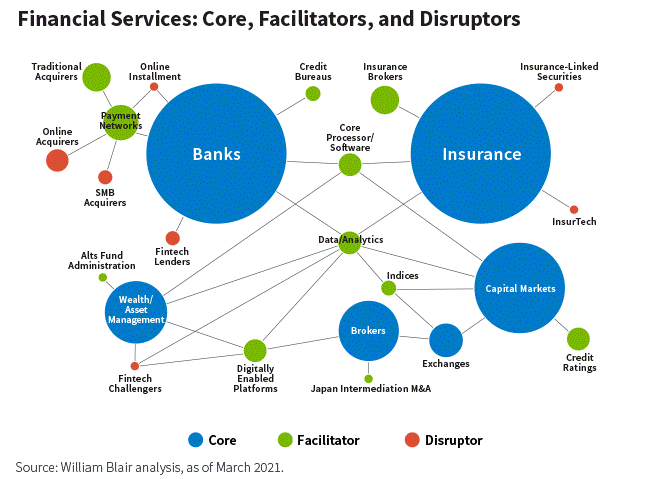A Comprehensive Guide to the Financial Services Industry
Introduction
The financial services industry is a vast and intricate sector that plays a crucial role in the global economy. It encompasses a wide range of businesses, activities, and products that revolve around money and finance. In this comprehensive guide, we will delve into the various aspects of the financial services industry, including its functions, segments, trends, and challenges.
Understanding the Financial Services Industry
The financial services industry refers to the collection of businesses that provide financial products and services to individuals, businesses, and governments. Its primary function is to facilitate the management, investment, and allocation of funds. This industry is vital for the functioning of the economy as it enables the flow of capital, promotes economic growth, and supports financial stability.
Main Functions and Segments
The financial services industry can be broadly categorized into several segments, each with its own unique functions and characteristics. These segments include:
1. Banking
Banking is one of the core segments of the financial services industry. Banks play a pivotal role in the economy by accepting deposits, providing loans, facilitating payments, and offering various financial services such as wealth management and investment advice.
2. Insurance
The insurance sector is responsible for managing risks and providing protection against unforeseen events. Insurance companies offer a wide range of policies, including life insurance, health insurance, property insurance, and liability insurance.
3. Investment
The investment segment of the financial services industry focuses on the allocation of funds to generate returns. This includes investment banking, asset management, hedge funds, private equity, and venture capital. These entities help individuals and institutions invest in stocks, bonds, real estate, and other financial instruments.
4. Payment Services
Payment services have become increasingly important in today's digital age. This segment includes companies that facilitate electronic payments, such as credit card companies, payment processors, and mobile payment providers.
5. Fintech
Fintech, short for financial technology, refers to the application of technology to enhance and automate financial services. Fintech companies offer innovative solutions in areas such as online banking, digital payments, robo-advisory, peer-to-peer lending, and blockchain technology.
Trends in the Financial Services Industry
The financial services industry is constantly evolving, driven by technological advancements, changing consumer preferences, and regulatory developments. Some of the key trends shaping the industry include:
1. Digital Transformation
The rise of technology has revolutionized the financial services industry. Digital transformation has led to the emergence of online banking, mobile payments, and digital currencies. It has also facilitated the automation of processes, improved customer experience, and enabled the development of new business models.
2. Big Data and Analytics
With the proliferation of data, financial institutions are increasingly leveraging big data and analytics to gain insights, make informed decisions, and personalize their offerings. Advanced analytics techniques help detect patterns, identify risks, and optimize operations.
3. Regulatory Compliance
The financial services industry is heavily regulated to ensure stability, protect consumers, and prevent financial crimes. Compliance with regulations such as the Dodd-Frank Act and the European Union's General Data Protection Regulation (GDPR) is a significant challenge for financial institutions.
4. Cybersecurity
As technology becomes more prevalent, the risk of cyber threats and data breaches increases. Financial institutions need to invest in robust cybersecurity measures to protect sensitive customer information and maintain trust.
5. Sustainable Finance
There is a growing focus on sustainable finance, which involves integrating environmental, social, and governance (ESG) factors into investment decisions. Financial institutions are incorporating ESG criteria into their investment strategies and offering sustainable products to meet the evolving needs of investors.
Challenges in the Financial Services Industry
While the financial services industry presents numerous opportunities, it also faces several challenges:
1. Regulatory Complexity
The regulatory landscape is complex and constantly evolving. Financial institutions must navigate a web of regulations and comply with multiple regulatory bodies, which can be time-consuming and costly.
2. Cybersecurity Risks
As mentioned earlier, cybersecurity threats pose a significant risk to the financial services industry. Institutions must invest in robust security measures and stay vigilant against cyber attacks.
3. Technological Disruption
The rapid pace of technological advancements can disrupt traditional business models and render certain services obsolete. Financial institutions need to embrace innovation and adapt to changing customer expectations.
4. Economic Uncertainty
The financial services industry is highly sensitive to economic fluctuations. Economic downturns, geopolitical events, and market volatility can impact profitability and stability.
5. Changing Customer Expectations
Customers today expect seamless digital experiences, personalized services, and greater transparency. Financial institutions must adapt to these changing expectations to remain competitive.
Conclusion
The financial services industry plays a vital role in the global economy, providing essential products and services that enable the efficient management and allocation of funds. Understanding the functions, segments, trends, and challenges within this industry is crucial for individuals and businesses alike. By staying informed and adapting to the evolving landscape, financial institutions can navigate the complexities and seize the opportunities presented by this dynamic sector.







© 2024 Bezhan Azam. All Rights Reserved.
CONNECT WITH ME:
SITE LINKS
